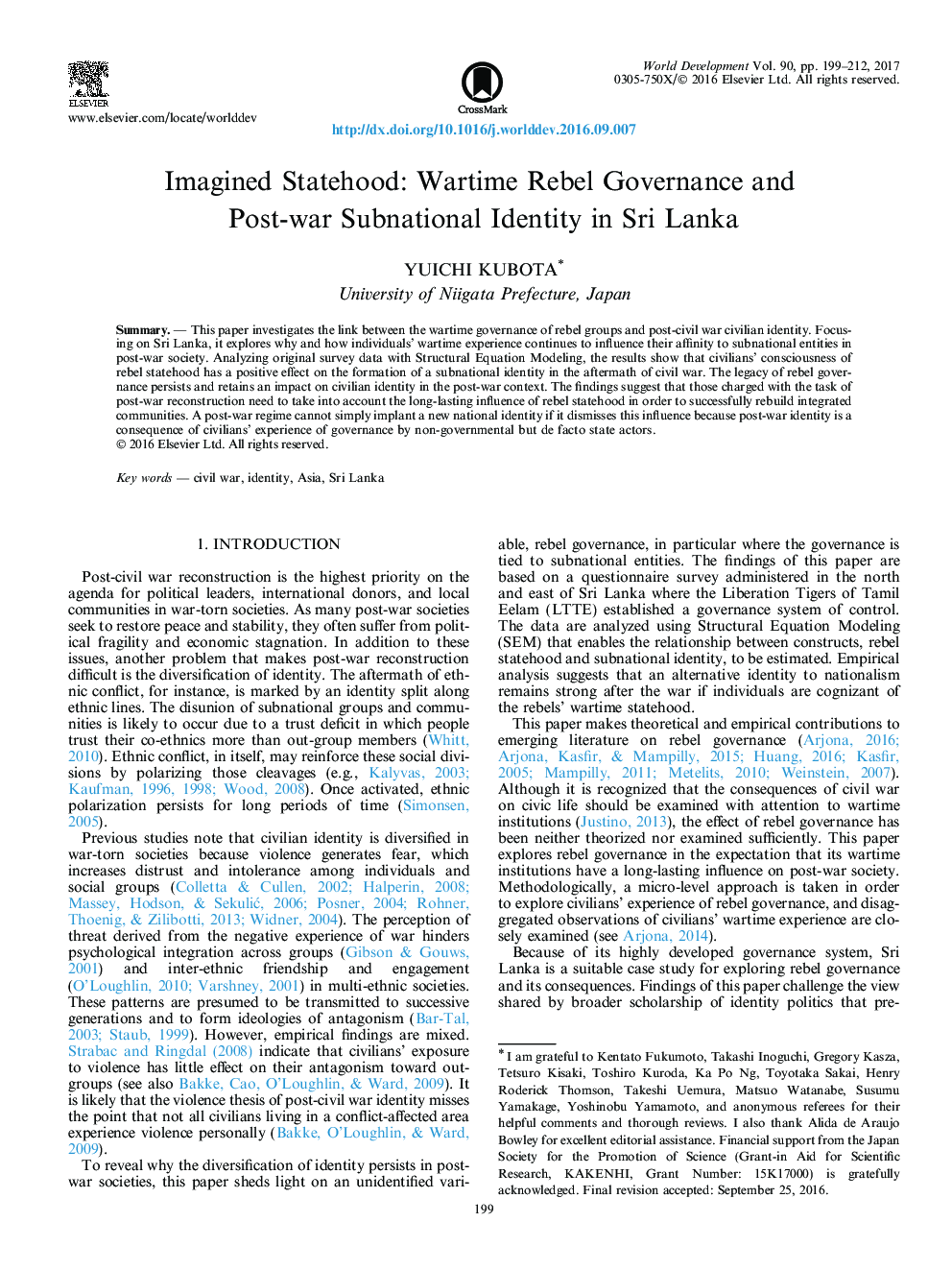| Article ID | Journal | Published Year | Pages | File Type |
|---|---|---|---|---|
| 5105249 | World Development | 2017 | 14 Pages |
Abstract
This paper investigates the link between the wartime governance of rebel groups and post-civil war civilian identity. Focusing on Sri Lanka, it explores why and how individuals' wartime experience continues to influence their affinity to subnational entities in post-war society. Analyzing original survey data with Structural Equation Modeling, the results show that civilians' consciousness of rebel statehood has a positive effect on the formation of a subnational identity in the aftermath of civil war. The legacy of rebel governance persists and retains an impact on civilian identity in the post-war context. The findings suggest that those charged with the task of post-war reconstruction need to take into account the long-lasting influence of rebel statehood in order to successfully rebuild integrated communities. A post-war regime cannot simply implant a new national identity if it dismisses this influence because post-war identity is a consequence of civilians' experience of governance by non-governmental but de facto state actors.
Related Topics
Social Sciences and Humanities
Economics, Econometrics and Finance
Economics and Econometrics
Authors
Yuichi Kubota,
